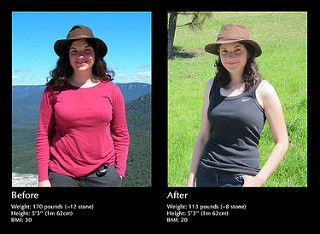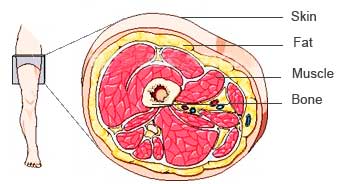Keeping a Food Diary Helps With Weight Loss
The first step to reaching your ideal weight in the New Year may be as simple as writing it down.
Putting a pen to paper and keeping a daily journal of meals and snacks is one of the best strategies of successful dieters, says Dr. Christopher J. Mosunic, a specialist in weight management and diabetes at Greenwich Hospital in Greenwich, Connecticut.
"Keeping a food diary is like exercise, it will always help you lose if you do it consistently," says Mosunic, a licensed clinical psychologist and registered dietitian who trained at Duke University's famed weight loss clinic. More importantly, the writing habit "is one of the top predictors of weight loss success," Mosunic adds. No wonder some of the country's major commercial diet plans strongly recommend the write-what-you-eat journaling practice to their clients.
Journaling about food intake on a regular base seems to function as a form of cognitive behavioral therapy for Dr. Mosunic's patients, many of them Type 2 diabetics for whom weight management is critical to their health and well-being.
Dr. Mosunic explains:
"I can split my patients into two groups. The food diary keepers and the non-keepers. The people who keep diaries are usually very successful and I work with them for about 12 weeks. The people who don't are people I sometimes see for years."
In terms of the diary keepers' success he explains, "It's not much different than taking notes in class. The more your write, the better you perform."
Keeping a daily journal of meals and snacks may be an excellent diet strategy.
The reasons for the success of journaling dieters have a lot to do with their willingness to acknowledge every bite of food they consume. "It can help you realize how many calories you are consuming each day really quickly," he says.
Honest journals also help weight loss experts such as Dr. Mosunic track patterns in eating and behaviors. "One of the key behaviors we can identify and address is how binge eating happens," he explains. "You can see by looking at something as simple as what people ate for breakfast, why their blood glucose goes low and they end up binge-eating in the afternoon. "
Ideally, a food diary is best shared with an expert on weight loss and nutrition, such as Dr. Mosunic, who can help patients identify overeating triggers and flaws in their nutrition.
Still, the practice can be helpful to a more casual dieter who just has a few pounds to lose or wants to break-thru a stubborn weight-loss plateau.
Here are some of Dr. Mosunic's food diary tips:
- Keep it simple: "One of the worst mistakes I see my patients make is using these complex, computerized Internet-based programs," he says. The best journals are easy to keep and understand. Some of the most straightforward computer-based programs can be found at Livestrong.com and Dailyplate.com. Dr. Mosunic keeps his own journals on Microsoft Word documents.
- Write everything down: "Even the handful of chips or pretzels," says Mosunic. "It's part of the practice of just being responsible for what you consume."
- Share your journal: "It's always best to have someone who reads it," says Mosunic, noting some of his favorite food diaries have "junk food all over the pages." The reason? "I know the patients are being honest!"
-
The Truth About Losing Fat On Your Stomach
Do you know anybody who does not wish to get rid of the fat on one par
-
The Biggest Loser Launches New Celebrity Cruise
Helping people loose weight on a Celebrity cruise vacation is the new
-
A Trainer Explains: Top 13 Ways I Get Back In Shape
There’s a perception that trainers get to work out all day. Oh,
-
What Is In A Weight Loss Diet Supplement?
Now, the questions are generally: is there any truth concerning the ma
-
Hating Your Belly Fat? Cortisol, Sleep, and What They Have In Common
When you are thinking about things that
-
Why Its Not Too Late To Lose Weight After 50
- DON'T MISS
- Meet Your Goals In Weight Loss Now!
- End Your Weight Loss Worries - New Type Of Diet Was Invented!
- 11 Tips To Eat Like A Skinny Woman (If Thats Your Goal)
- Calorie Burner Foods
- Weight Loss Clubs May Be The Best Way To Lose Weight
- 5 Ways To Lose Fat Fast
- Forget All About That Calorie Counting Crap And Learn How To Lose Some Weight
- New Year New You
- Exercise Nutrition: How To Eat For Energy When Working Out
- Reading Food Labels - Its Easy




